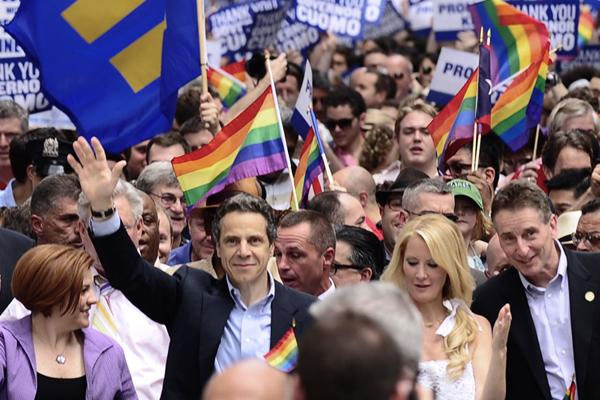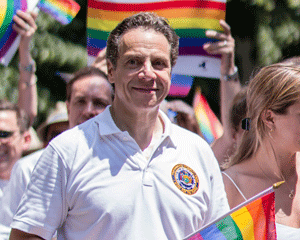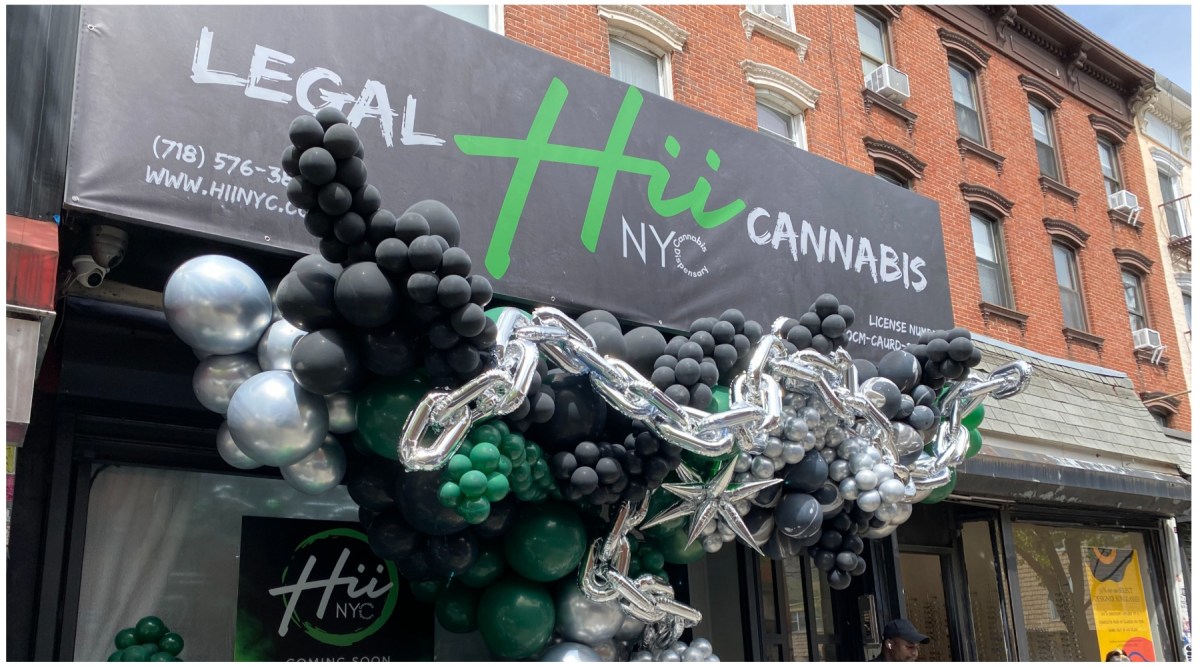BY ALBERT AMATEAU | The state Court of Appeals, New York’s highest court, on Mon., June 30, affirmed the right of local municipalities to use their zoning laws to ban fracking to extract gas from deep shale deposits.
By 5 to 2, the court made its decision on the narrow issue of the “home rule” provision of the state’s constitution.
The ruling was hailed by a coalition of environmental groups who for several years have declared that drilling gas wells by horizontal hydraulic fracturing endangers the supply of drinking water and severely degrades the landscape.
Gas and oil industry advocates, however, said the decision casts a pall on the economic future of New York State.
The issue has been in the forefront for several years. Since 2008, the state Department of Environmental Conservation has been holding hearings on proposed fracking regulations, but has not yet indicated when a final draft will be made public. In 2012, the state Department of Health began considering the implications of fracking, but has not announced any conclusions, and still declines to say when it might conclude its study. Governor Andrew Cuomo, who faces an election in November, has so far refused to commit himself on the issue.
Nevertheless, Kate Sinding, senior attorney for the Natural Resources Defense Council, said of the Court of Appeals ruling, “This is a tremendous decision. We joined with about a dozen environmental organizations in a ‘friend of the court’ brief on how local governments can use their land use regulations.”
Sinding noted that there has been a semi-official moratorium on fracking for six years because of the state’s reluctance to publish new regulations.

“When the issue was kicked up to the Department of Health two years ago, there was almost no data on fracking’s effect on health,” she said. “But in the last year and a half, there’s been a lot of development along those lines, and we hope the governor will be able to take new health information into consideration before making a decision.”
The two cases before the Court of Appeals began in 2011 in the town of Dryden in Tompkins County, near Ithaca, and in Middlefield in Otsego County, east of Cooperstown. Since then, about 170 towns have passed fracking bans or moratoria and about 40 towns have passed ordinances supporting fracking.
The Dryden action was challenged in court by Norse Energy, a Norwegian energy company that went bankrupt after investing heavily in drilling leases on land in the state. The Middlefield action was challenged by Cooperstown Holstein, a dairy farm that had leased out land for drilling.
In Ulster County, in the Hudson Valley, the towns of Marbletown, New Paltz, Rochester, Rosendale and Woodstock have banned fracking, according to the Oneida Daily Dispatch.
In the past year, three townships in Colorado and one in Ohio have approved anti-fracking ordinances, according to N.R.D.C.
Brad Gill, executive director of the Independent Oil and Gas Association of New York, said the Court of Appeals decision “puts a chilling effect on investing in New York’s oil and gas industry.” But Sinding suggested that the current relatively low prices in the gas market make drilling unlikely in the near future.
Fracking involves injecting high volumes of water, laced with chemicals and sand, under high pressure, into the Marcellus shale deposits 2,000 to 5,000 feet deep. Each well could extend horizontally for thousands of feet and each could be “fracked” two or three times. The Marcellus formation has been said to contain gas reserves comparable to those of Saudi Arabia. The Marcellus underlies an area between Ohio, Pennsylvania and New York, whose Southern Tier counties along the Pennsylvania border have 20 percent of the regional formation.
New Yorkers Against Fracking, a group opposed to the practice, said on Monday, “We applaud the court for once again affirming the rights of New Yorkers to ban fracking and its toxic effects from their communities. But water and air contamination do not stop at local boundaries. Governor Cuomo must ban fracking statewide to protect our health and homes from the arrogant and inherently harmful fracking industry.”
Nevertheless, Annie Wilson, senior energy policy adviser of the New York Environmental Justice Committee, said that the decision was very good news indeed for fracking opponents.
Paul Gallay, president of the environmental group Riverkeeper, said, “This decision is a big step forward. Now, municipalities have the fate of their environment in their own hands. We’re very proud to have joined Environmental Justice and N.R.D.C. in the amicus [friend of the court] brief in these cases.”
Moreover, Gallay said, he did not see any possibilities of appeal, for example, to a U.S. District Court, because no federal law was involved in the cases.
The majority opinion of the state Court of Appeals, said, “The towns both studied the issue and acted within their home rule powers in determining that gas drilling would permanently alter and adversely affect the deliberately cultivated small town character of their communities.”
While towns could not preempt state jurisdiction regarding gas drilling regulations, “we do not lightly presume preemption where the preeminent power of a locality to regulate land use is at stake,” said the decision by Judge Victoria Gaffeo, joined by Chief Judge Jonathan Lippman and Judges Susan P. Read, Jenny Rivera and Sheila Abdu-Salaam.
The dissent, by Judges Eugene Pigott and Robert Smith, held that the towns of Dryden and Middlefield did preempt the state jurisdiction on regulating fracking.
Two years ago, the New York State Legislature banned fracking in the New York City and Syracuse watersheds.


















